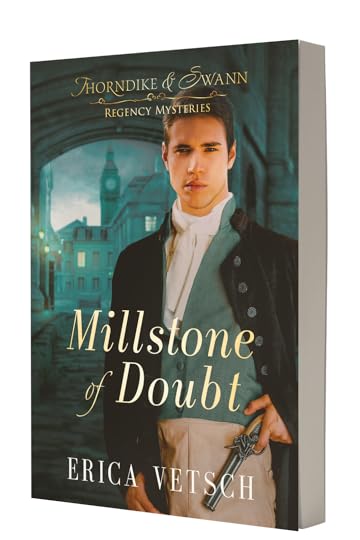A Reader Question Answered
Erica here, digging out of the tinsel and wrapping paper to answer a reader question. I hope you all had an amazing time with family and friends on Christmas yesterday. I'm currently up to my eyeballs in my other job, in this, my busiest week of the year. I'm a bookkeeper for a lumber company, and it's end of year time. Lots of meetings with accountants, bankers, and the occasional lawyer, not to mention my boss...who also happens to be my husband. :)

Recently, we had a longtime reader write in to the seekerville email account to ask a few writing related questions, and I was lucky enough to get my name in first to answer them! Hee Hee!
Here are the questions: Are all authors obligated to write a daily word count for the publishers? What if an author works best with time or progress goals? Then what do they do or how do they explain it to the editor or their agent?
I'll take them one at a time.
Are all authors obligated to write a daily word count for the publishers?
The quick answer is: Nope. You sign a contract to deliver a certain manuscript of a certain number of words on a certain date, and that's it. The publisher does not (for the most part) worry about how you are going to get it done, they just expect you to hold up your end of the bargain. If you write only on weekends, or only during your lunch break, or while the baby naps, or maybe you go away once a month to a hotel room and write like your hair is on fire, you do you. The one caveat is, most publishers would prefer you did not wait until three days before your deadline to start writing your 100K word book. They expect you to plan and write and turn in your highest quality work.

What if an author works best with time or progress goals?
One of the best things about writing is that you get to tailor your process to your personality. Mary Connealy writes a minimum of 1000 words every day, and usually more. Ruthy gets up at the absolute CRACK of dawn to write until her daily duties (of which she has approximately a zillion and a half) require her attention. I am an afternoon M-F writer. I usually aim for a word count for the day, or try to finish a scene, and sometimes I stare at the blinking cursor wondering about most of my life choices. You may write everything in longhand and transfer to your laptop later, or dictate everything into a recorder. We're all different, we all have different processes, but we all get the contracted work done and hit our deadlines. Which leads to question #3.

Then what do they do or how do they explain it to the editor or their agent?
You don't have to explain your process to your editor or agent as long as you're getting the work done. However, there are some things you need to communicate about your progress to your agent, who can then pass it along to your editor if necessary. If you have a major life crisis that will affect your ability to finish the book. Your house burns down, you contract dengue fever, your sister and her quintuplets move into your mobile home with you for six weeks, etc. If you know you are not going to make your deadline, you MUST communicate that to your agent as soon as possible. I recently taught a class at a conference with my agent and my editor, and I mentioned the primary way to endear yourself to your editor is to turn in the expected project on the expected date with as little drama as possible, because if you're late, it set into motion a toppling domino of bad things at the publishing house. My editor, Janyre Tromp, from Kregel Publications, said her schedule is so tight, that if one of her authors is even a week late, it snarls things up. Areas that are affected include editorial schedules, cover art, marketing, catalog copy, online retail slots, publicity tours, advertising in places like Library Journal, and so many more. So, bottom line, don't be late, and if you have to be late, let your agent and editor know as soon as humanly possible. But as for your personal writing style and how you reach those deadlines, that's up to you!
Thank you so much to Kayla for sending in her questions. If YOU have a question about writing, publishing, or whatever, send it in to Seekerville2@gmail.com and someone will write up a post about it!

Regency London's detective duo is back on a new case--and this one is going to be a killer
Caught in the explosion of the Hammersmith Mill in London, Bow Street Runner Daniel Swann rushes to help any survivors only to find the mill's owner dead of an apparent gunshot.
Even though the owner's daughter, Agatha Montgomery, mourns his death, it seems there are more than a few people with motive for murder. But Daniel can't take this investigation slow and steady. Instead, he must dig through all the suspects as quickly as he can, because the clock is ticking until his mysterious patronage--and his job as a runner--comes to an abrupt and painful end. It seems to Daniel that, like his earthly father, his heavenly Father has abandoned him to the fates.
Lady Juliette Thorndike is Agatha's bosom friend and has the inside knowledge of the wealthy London ton to be invaluable to Daniel. She should be in a perfect position to help with the case. Still, her instructor in the art of spy craft orders her to stay out of the investigation. But circumstances intervene, dropping her into the middle of the deadly pursuit.When a dreadful accident ends in another death on the mill floor, Daniel discovers a connection to his murder case--and to his own secret past. Now he and Juliette are in a race to find the killer before his time runs out.
 Best-selling, award-winning author, Erica Vetsch loves Jesus, history, romance, and sports. When she’s not writing fiction, she’s planning her next trip to a history museum. You can connect with her at her website, www.ericavetsch.com where you can learn about her books and sign up for her newsletter, and you can find her online at https://www.facebook.com/groups/inspirationalregencyreaders where she spends way too much time!
Best-selling, award-winning author, Erica Vetsch loves Jesus, history, romance, and sports. When she’s not writing fiction, she’s planning her next trip to a history museum. You can connect with her at her website, www.ericavetsch.com where you can learn about her books and sign up for her newsletter, and you can find her online at https://www.facebook.com/groups/inspirationalregencyreaders where she spends way too much time!



